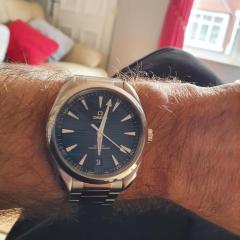-
Recently Browsing
- No registered users viewing this page.
-
Topics
-
Posts
-
By RichardHarris123 · Posted
I've been called a vintage tool many times . -
By MariusJacob · Posted
I must update myself, I guess nowadays the lubrication procedures and assembly protocols have improved or, at least, changed. I hope there is still hope for vintage tools in this area. -
By Neverenoughwatches · Posted
Lol ok, well I'm not about to explain it, I'm a bit fuzzy on it myself, I'll get it all arse about face.....actually that might be part of it, now I come to think about it. -
By MariusJacob · Posted
I really don't remember what you are talking about. I do own a quartz watch, I could change the battery myself, but I take it to the watchmaker of my neighbourhood so I can talk face to face with somebody about watches. -
Have you had a look at lathes.co.uk/ watchmaker lathe
-







Recommended Posts